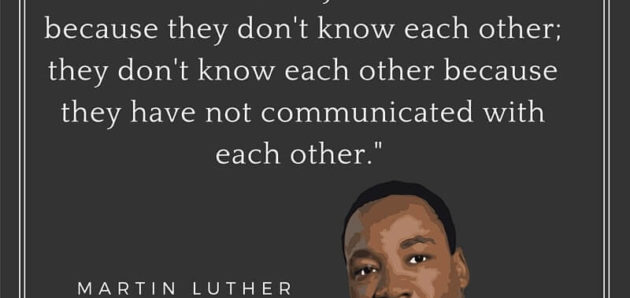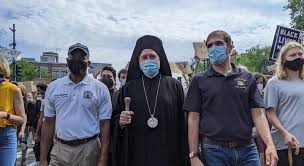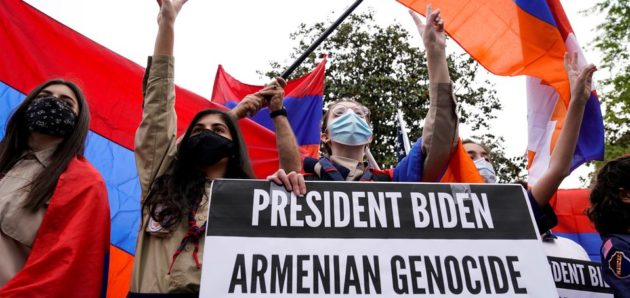
APRIL 24, 2021, The White House Each year on this day, we remember the lives of all those who died in the Ottoman-era Armenian genocide and recommit ourselves to preventing such an atrocity from ever again occurring. Beginning on April 24, 1915, with the arrest of Armenian intellectuals and community leaders in Constantinople by Ottoman authorities, one and a half million Armenians were deported, massacred, or marched to their deaths in a campaign of extermination. We honor the victims of the Meds Yeghern so that the horrors of what happened are never lost to history. And we remember so that we remain ever-vigilant against the corrosive influence of hate in all its forms. Of those who survived, most were forced to find new homes and new lives around the world, including in the United States. With strength and resilience, the Armenian people survived and rebuilt their community. Over the decades Armenian immigrants have enriched the United States in countless ways, but they have never forgotten the tragic history that brought so many of their ancestors to our shores. We honor their story. We see that pain. We affirm the history. We do this not to cast...

Statement by President Joe Biden on Armenian Remembrance Day...
1
Martin Luther King Jr. Day
2
A Socially Just Democracy Makes For a More Perfect Union...
3Posted in News
Arab World Christians at Risk
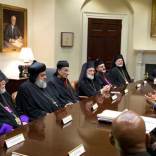
I am concerned with the fate of the Christian communities of the Arab World. From Egypt to Iraq, these ancient churches have not only survived through centuries of hardship, foreign invasions, and domestic repression, they have also played an important role contributing to Arab culture and Islamic civilization.
Given the unsettling hostilities of the post-Iraq and post-Arab Spring Middle East, the region’s minority religious and ethnic groups find themselves at great risk. Caught in the midst of sectarian conflicts brought on by war, occupation, repression, and severe social and political dislocation, vulnerable communities have paid a terrible price, most especially in Syria and Iraq. Whether forced to flee the violence of the civil wars that have ravaged these countries, or expelled by murderous extremists as part of genocidal “cleansing” campaigns, the size of these once vibrant Christian communities have been so depleted, that some rightly fear their extinction in their homelands. Because these ancient churches date back to the time of Christ and have added richness and texture to the culture of the Arab East, it is inconceivable to imagine Egypt, Lebanon, Palestine, Syria, or Iraq without their Copts, Maronites, Assyrian/Chaldeans, and other Catholic and Orthodox Christian communities.
In a real sense, what is at stake is not just the survival of these important minorities; it is the future of the region, itself. In a word, intolerant and violent extremist groups like ISIS and their kin, pose an existential challenge not only to Christians, but to all Arabs and Muslims-asking them to look to the future and imagine the kind of society they want to emerge from the current turmoil.
Of course, given the onslaught of ISIS in Syria and Iraq and their horrific displays of violence and intolerance, the immediate question before us is what is to be done now to defend Christians and other minorities put at risk by the raging conflict.
I am a Maronite Catholic and an Arab American, deeply committed to my heritage and the land of my father and forefathers, and concerned about the survival of my rite and that of the other Christian communities in the Arab World. I am also concerned because I am an American who believes that my country, and the West in general, has, on too many occasions, negatively contributed to the conflicts that are unsettling the Middle East today. I am concerned lest we err again taking steps, out of blind ignorance or sheer folly, which would only make the regional situation more volatile and precarious.
I am concerned, for example, that some of the loudest voices calling for action to defend the Christians in Iraq today come from the far right. It is disturbing, of course, that a decade ago as the Bush Administration blundered its way into Iraq, this wing of the political spectrum was too busy beating the drums of war to hear the warnings coming from Iraq’s Christians about the impact that the war and the pathetic misguided occupation would have on their communities. This same crowd went deaf again to the plight of Iraq’s Christians during the brutal civil war that followed, with its “ethnic cleansing” that reduced the country’s Christian population from 1.4 million to 400,000.
Does defending Christians mean that Saddam should have been tolerated because he provided more protection for Christians than the sectarian pogroms that followed? Most certainly not. But because those who are now the most strident advocates for a U.S. military-led assault on Iraq and Syria are the very same folks whose policies led to the current crisis, I believe we should, at the very least, be wary of their advocacy.
Just as it is important that we be concerned not to allow the defense of Christians to serve as a cover for the agenda of the war-hawks, we must not allow it to degenerate into Muslim-bashing. Islamophobes may draw applause from some in Washington, but their inflammatory rhetoric will only harm the fate of Christians in the Middle East. In the end, they appear to be more focused on fomenting a “clash of civilizations” then contributing to a reformed and reconstructed Arab World.
What should also be of concern are those who either want to defend only some Christians- ignoring for example, the hardships faced by Palestinian Christians living under Israeli occupation-or those whose advocacy is limited exclusively to Christians. As a Christian and an Arab-American, I reject both approaches. I cannot imagine Palestine without its Arab Christian community. All too often, American evangelicals come to the Holy Land to see the sights, while ignoring the indigenous Christians struggling to survive in the face of an unrelenting occupation. The famed little town of Bethlehem has lost most of its land to Israeli land-grabs, and its people are hemmed in by a 30-foot concrete wall. It is easier for an American tourist to travel thousands of miles to visit Jerusalem, then it is for a Bethlehemite to go a few miles to pray in the Holy City.
And as a Christian, I cannot counsel the approach of those who would extend their support to Christians-only and say, in effect, “the hell with the rest”. The defense of Christians must be holistic and comprehensive. Minorities are most secure when they live in societies that are inclusive and representative, tolerant and respectful of the rights and contributions of all their citizens.
To be sure, ISIS must be defeated and dictators must be removed. But we will only succeed in defending Christians and all other minorities if the sectarian extremists and the dictators are replaced by systems of governance that do not establish one religion or sect above others. As demanding and far-reaching as that may be, it is the challenge we must face.
About Dr. Zogby
Dr. James J. Zogby is the author of Arab Voices (Palgrave Macmillan, October 2010) and the founder and president of the Arab American Institute (AAI), a Washington, D.C.-based organization which serves as the political and policy research arm of the Arab American community. He is also Managing Director of Zogby Research Services, which specializes in groundbreaking public opinion polling across the Arab world. Zogby is a lecturer and scholar in Middle Eastern affairs and a Visiting Professor of Social Research and Public Polling at New York University in Abu Dhabi. Read his full bio here.
Read MorePosted in News
When the Lions don’t Roar
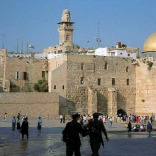
By David Nissan
The abduction and forced conversion of the Christian schoolgirls in Nigeria in mid-April, and the visit of the Pope to the region last week, focused a much needed spotlight on the plight of the Christian populations in the region.
All over the world, there are religious groups that are discriminated against and even persecuted in various degrees, but there is no doubt that the place where Christians suffer the harshest form of persecution is the Middle East, the birthplace of Christianity. The biggest threat to Christians in the Middle East and North Africa, most of them Eastern Orthodox Christians, is from extremist Islamic militants who feel that they are once again facing a Christian military, political and cultural crusade led by the United States in the aftermath of 9/11. And while the Christian population in the region has been decreasing steadily for a long while – because of persecution and also lower birth rates compared to the Muslim population, the turmoil and the political vacuum caused by Arab Spring has only accelerated the process. For example, 70 years ago, the city of Bethlehem was 85% Christian; today, it’s down to 20%. More than 100,000 Christians left/fled Egypt in the past two years; 80% of Iraq’s Christians fled the country since the 1980’s. In Syria, hundreds of thousands of Christians have fled or have been displaced in the three years of civil war. Christians feel threatened, and this is the trend in every single country in the region with the notable exceptions of Israel and Jordan.
Religious tolerance is certainly not the norm in this part of the world. And while manifestations of intolerance among the extremist fringes of the population are almost expected, I feel that the main problem is the silence, stuttering and impotence of the mainstream political and religious authorities in the face of violent acts perpetrated by extremists. It is painfully clear that the only way to deal successfully with extremism – any form of extremism – is to confront it forcefully with zero tolerance. It is the responsibility of the mainstream powers in the system to take a clear and unequivocal stand against the fanatics, and declare the abuse of minority rights and freedoms as being illegitimate and unacceptable – not through feeble protests and condemnations but by concrete and resolute action. But perhaps it is unrealistic to expect Saudi Arabia, which is considered by many to be the mainstream spiritual leader in the Muslim world, to raise its voice against religious extremism and intolerance when in Saudi Arabia itself, Islam is not just the official religion, it is the only permitted religion and public freedom of worship is not tolerated.
The problem is the silence of the lions when their roars need to be heard the most. What is necessary is a loud, clear, unambiguous and uncompromising voice, sounded by all relevant authorities at the local, regional and international level, assertively condemning the violation of minority rights, and more importantly calling for firm action against all extremist violators. While the real test in a democracy is not only the rule of the majority but rather the steadfast protection of the rights and liberties of minorities, this is a principle that should be demanded from non-democratic governments as well.
It seems that this is not only a local problem, and that a wave of intolerance is sweeping the world today. We saw this recently in the results of the elections to the European Parliament last week where extremist groups have increased their power in almost every single member state.
Seeing the spiritual leaders of the three major monotheistic religions gathered in one place – the Holy Land – last week made me think about how much blood was spilt needlessly over the centuries, here and in other places, because of religious zealots. Unfortunately, religious extremists and fanatics are definitely alive and kicking today, and they continue to espouse and perpetrate blind violence against other human beings whose only fault is not praying to a different God, but rather praying to the same God, differently.
David Nissan is a Middle East and Iran Specialist and Public Speaker.
Read More
